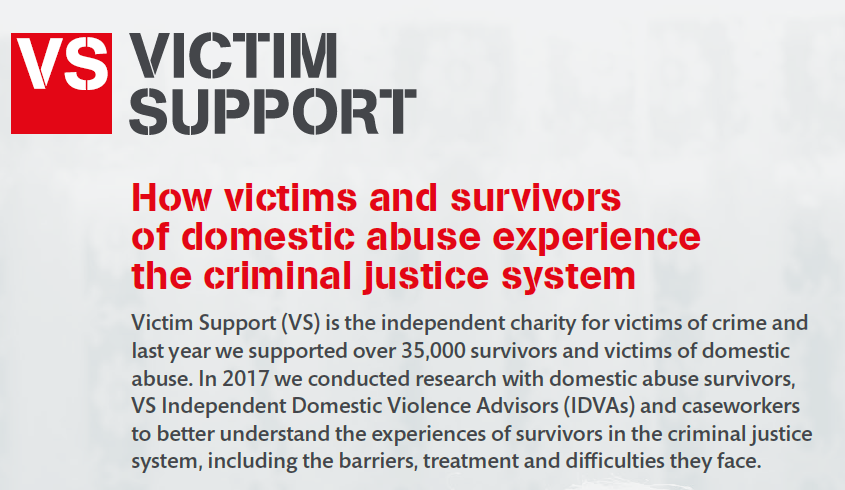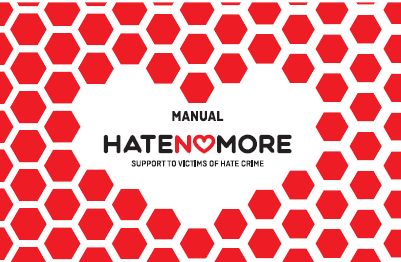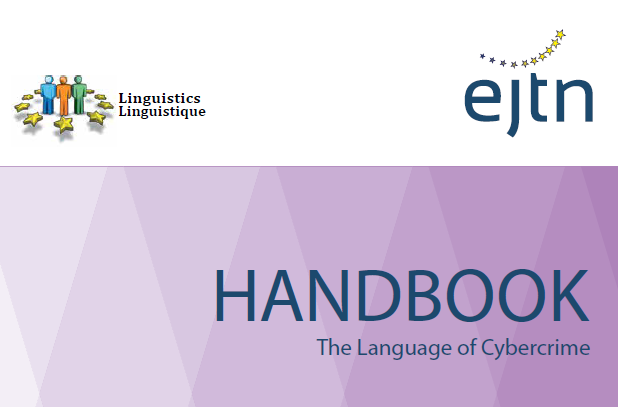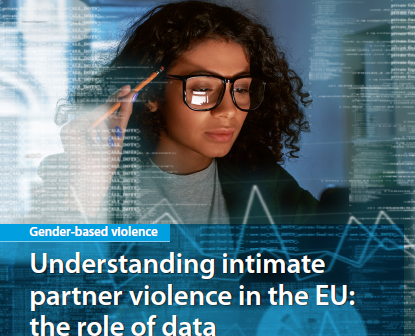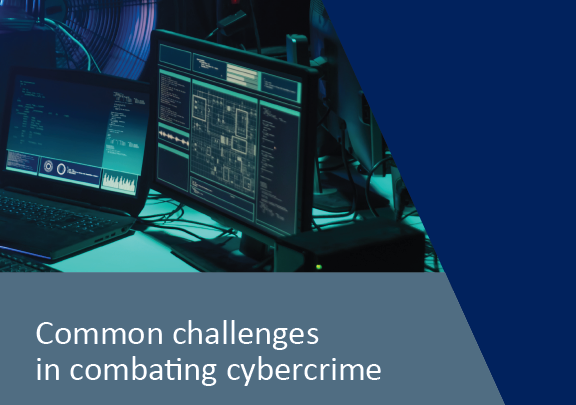For a quick search in the Knowledge database below, please use the search box. Also, note that using one or more of the dropdown filters will optimise your search.
Watch this video to find out more about our Knowledge Database and the publications we have collected here for you: video
Knowledge Database
-
Handbook: Voices of victims of terrorism
This handbook is a compilation of experiences shared during the Radicalisation Awareness Network (RAN) meetings of the Voices of Victims working group (RAN VVT), held from 2012 to 2015. The RAN VVT working group considered how testimonies from victims of terrorism can work as a powerful narrative in countering violent extremism (CVE). The handbook aims to disseminate the shared experiences with those involved in supporting victims. Besides victim organisations, it also aims to reach out to a broader audience: educators, youth workers and other professionals working on CVE (e.g. prison/probation staff or community police).
Keywords: terrorism -
Psychological First Aid for Schools: Field Operation Guide
National Child Traumatic Stress Network (USA) | Published in 2009
The field of school safety and emergency management has evolved significantly over the past decade. Tragically, acts of violence, natural disasters, and terrorist attacks have taught us many lessons. We also know that other types of emergencies can impact schools, including medical emergencies, transportation accidents, sports injuries, peer victimization, public health emergencies, and the sudden death of a member of the school community. We now recognize the need for school emergency management plans that are up-to-date and take an “all-hazards” approach with clear communication channels and procedures that effectively reunite parents and caregivers with students. We have also learned that preparing school administrators, teachers, and school partnering agencies before a critical event is crucial for effective response, the value of ongoing training and emergency exercises, and that having intervention models that address the public health, mental health, and psychosocial needs of students and staff is essential to a safe school environment and the resumption of learning.
Keywords: capacity building, children, support, terrorism -
Police and justice sector data on intimate partner violence against women in the European Union
EIGE | Published in 2019
Since 2012, EIGE has analysed data collection of different forms of violence against women across the EU, within various sectors and institutions. A measurement framework on violence against women was provided in the 2015 and 2017 editions of the Gender Equality Index, which relies on harmonised administrative and prevalence data from the Member States. The collection of administrative data enables Member States to assess the quality of agency responses to incidents of violence, create specific evidence-based measures to tackle the phenomenon and improve policies at national level. Eradicating gender-based violence — specifically intimate partner violence — within the EU thus depends on consistent and comparable data, acquired through a robust and coordinated framework of data collection. However, data currently collected by the police and justice sectors do not allow for a clear picture to be obtained of the scale of intimate partner violence within Member States and across the EU, as most Member States do not recognise intimate partner violence as a distinct offence.
Keywords: domestic violence, gender based violence -
Supporting Victims of Terrorism
On May 19, 2018, INVICTM - International Network Supporting Victims of Terrorism and Mass Violence - held its second international symposium on Supporting Victims of Terrorism in Stockholm, Sweden. This report reflects the discussions held during the symposium.
Keywords: support, terrorism, victims' rights -
How victims and survivors of domestic abuse experience the criminal justice system
Victim Support (VS) is the independent charity for victims of crime and last year we supported over 35,000 survivors and victims of domestic abuse. In 2017 we conducted research with domestic abuse survivors, VS Independent Domestic Violence Advisors (IDVAs) and caseworkers to better understand the experiences of survivors in the criminal justice system, including the barriers, treatment and difficulties they face.
Keywords: domestic violence, gender based violence, justice, victims' rights -
Hate No More: Support to Victims of Hate Crime
The Handbook HATE NO MORE – handbook for support to victims of hate crime introduces a set of procedures suitable for appropriate contact, assistance and support to victims of hate crimes. This handbook is thought for professionals that, throughout the E.U., may contact with victims of hate crime or related violence in a wide variety of services and institutions. Among these professionals are victim support workers, but also police officers and judicial practitioners. The handbook HATE NO MORE addresses a range of crucial contents for understanding the phenomenon of hate crime (Part 1) and presents some appropriate procedures to contact with and support victims of this type of crimes (Part 2).
Keywords: hate crime, support, victims' rights -
The Language of Cybercrime
European Judicial Training Network | Published in 2017
EJTN courses aim to develop participants’ legal and linguistic skills by combining legal knowledge and language exercises in a practical and dynamic way, including highly-acclaimed linguistic training on the vocabulary of judicial cooperation in criminal/civil matters, human rights, family law, competition law and cybercrime. This Handbook is the 1st edition compiling the most relevant training materials used in EJTN linguistic seminars on the vocabulary of cybercrime. It is addressed not only to participants, but also to all judges and public prosecutors interested in developing their linguistic skills. Definitions, exercises and examinations of real cases make the Handbook an invaluable, hands-on resource for any judge, prosecutor or trainer involved in linguistic endeavours.
Keywords: capacity building, cybercrime -
Understanding intimate partner violence in the EU: the role of data
EIGE | Published in 2019
This report assesses the capability of Member States to collect relevant administrative data and thus support their efforts to meet the monitoring requirements set out by the Victims’ Rights Directive and the Istanbul Convention. Taking the context and needs of each Member State into account, EIGE has developed country-specific recommendations to guide the improvement of administrative data collection on intimate partner violence at national level and promote the commitment of law enforcement agencies to this endeavour. Furthermore, to strengthen these efforts at the European level, policy and technical recommendations for Eurostat on the specifics of data collection on gender-based violence have been proposed. EIGE will continue supporting Member States in adopting approaches to combating violence against women that focus on gender inequality as its root cause. EIGE will seek to ensure partial monitoring through the domain of ‘Violence’ in the Gender Equality Index, which is based on robust data collection by the police and justice sectors. EIGE’s work will be a solid contribution to the implementation of EU and international legislation on combating gender-based violence.
Keywords: gender based violence, gender inequality -
The aftermath of a terrorist attack?
Practical tips and information by the Federal Public Service Health (Belgium) on coping with a terrorist attack
Keywords: support, terrorism -
Common challenges in combating cybercrime
Europol | Published in 2019
The objective of this document is to identify and categorise the common challenges in combating cybercrime from both a law enforcement and a judicial perspective. Eurojust and Europol’s European Cybercrime Centre (EC3) have identified the challenges based on and informed by operational and practical experience, joint deliberations and expert input. Other sources used include final reports of several thematic and strategic meetings with national experts and relevant stakeholders, strategic reports and assessments such as Europol’s EC3’s Internet Organised Crime Threat Assessment (IOCTA), as well as various open sources. Despite the availability of information, both in- and external, on the obstacles, the discussion can certainly benefit from more extensive (and broader) research and a closer comparison of existing legislation at national and international levels.
Keywords: cybercrime




